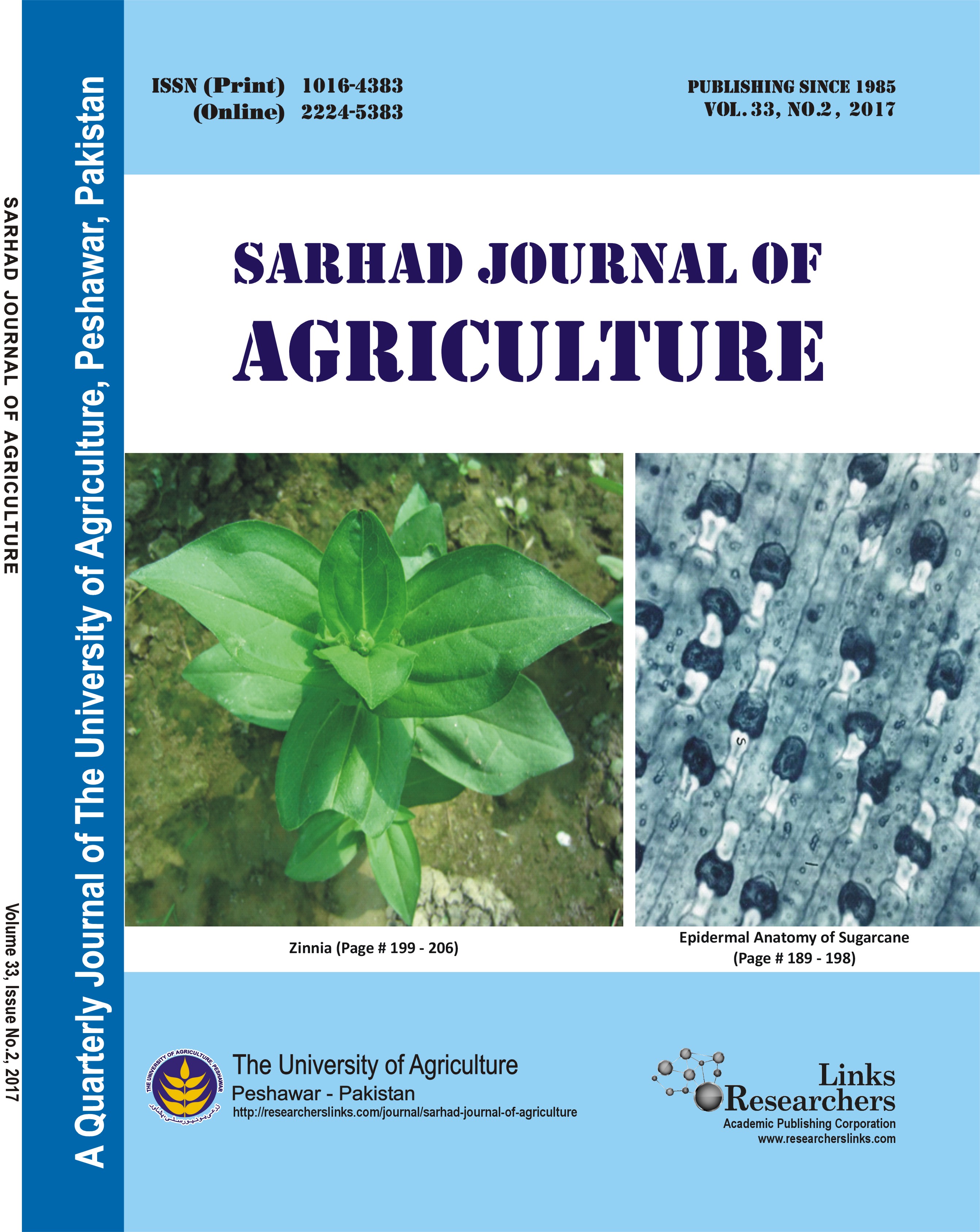Bovine Tuberculosis (bTB)-Isolation and Species-Specific Identification of Mycobacterium bovis from Bovine Raw Milk in Pakistan
Bovine Tuberculosis (bTB)-Isolation and Species-Specific Identification of Mycobacterium bovis from Bovine Raw Milk in Pakistan
Asad Ullah1*, Umar Sadique2, Sultan Ayaz1, Muhammad Subhan Qureshi2 and Farhan Anwar Khan2
ABSTRACT
A research study was carried out to investigate the prevalence of bovine tuberculosis (bTB); detection of Mycobacterium bovis (M. bovis) infection in lactating indigenous cattle/buffaloes raised on different commercial dairy farms and exposing the hazards linked with milk-born tuberculosis infection in the area where unpasteurized milk is normally used in the central zone of Khyber Pakhtunkhwa (KP), Pakistan. A total of 1225 cattle and 1175 buffaloes of more than one year were studied for the prevalence of bovine tuberculosis. A total of 1608 milk samples (793 from cattle and 815 from buffaloes) were collected from already PPD (purified protein derivatives) tested lactating animals aseptically. The data obtained were finally analyzed statistically using chi squared test. The Mycobacterium was identified through ZN staining, culture and PCR. Out of 1608 milk samples, 60 (3.73%) were found positive for acid fast bacteria through ZN staining whereas the prevalence of Mycobacterium bovis was confirmed in 65 (4.04%) and 85 (5.29%) isolates through culture and PCR respectively. The zoonotic spread of M. bovis infection was established in the study area. The data determines that animal food products in Pakistan are common reservoirs of mycobacteria and may pose great risk to the public. Bovine tuberculosis (bTB) is found one of the neglected zoonotic disease (NZD) caused by Mycobacterium bovis with public health significance and appear as a life threatening infection at the human-animal-ecosystem interface in low-resource settings in the central zone of KP, Pakistan. The surveillance, prevention and control programs of this NZD in the KP province of Pakistan is necessary because of the continual unrestricted movement of infected animals and the use of unpasteurized milk which might result in an increased spread of bTB to human population.
To share on other social networks, click on any share button. What are these?







